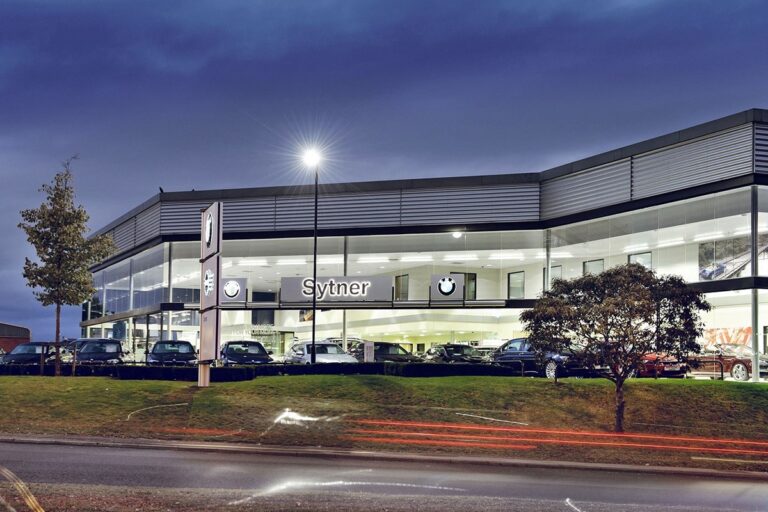At today’s Annual General Meeting of Vertu Motors plc (LON: VTU), the Chairman Peter Jones will make the following statement with regards to the four-month period to 30 June 2019.
Highlights
· Strong performance in service continued, with like-for-like revenue growth of 8.1% achieved. Overall aftersales margins grew in the Period
· 3.7% growth in like-for-like used vehicle sales volumes despite more subdued market conditions
· Used margins softened as used vehicle values fell at an accelerated rate from April before stabilising late in the period
· Like-for-like fleet and commercial volumes grew 2.7% and were ahead of market trends. Total volumes via this channel grew 9.7% augmented by impact of the Vans Direct acquisition
· Total UK private new car registrations fell 4.7% in the Period. Group like-for-like new retail vehicle sales volumes were 13.2% lower than prior year period with rising levels of gross profit per unit
· Continued focus on capital allocation, with 3.6 million shares (representing 1.0% of issued share capital) repurchased for cancellation since announcement of the year end results on 8 May 2019 (at an average price of 39.3p per share). As a result, £1.4m of cash has been utilised on the share buyback programme since 1 March and which continues.
| Increase (decrease) period-on-period | |||
| Total | Like-for-like | SMMT UK Registrations | |
| Group Revenues | +5.4% | +1.0% | |
| Service Revenues* | +14.7% | +8.1% | |
| Volumes: | |||
| Used retail vehicles | +5.9% | +3.7% | – |
| New retail vehicles | (10.3%) | (13.2%) | (4.7%) |
| New Motability vehicles | (4.1%) | (4.7%) | 3.5% |
| Fleet and Commercial vehicles | 9.7% | 2.7% | 1.5% |
*includes internal and external revenues
Aftersales
In the Period, the Group continued its focus on driving growth in its vehicle servicing departments, achieving an 8.1% increase in the Group’s like-for-like service revenues in the Period. The like-for-like gross margin percentage on vehicle servicing rose to 75.4% (2018: 75.0%) as technician salary levels stabilised and the Group drove higher average invoice values, through its effective vehicle health check process. In addition, the Group has increased hourly rates charged on internal work undertaken for sales departments and this aided aftersales margins. Overall, like-for-like gross profits in aftersales rose £2.6m in the Period year on year on the back of these positive trends.
The Group saw reduced contribution from its parts business, as a result of the previously announced Ford parts reorganisation which is now largely completed.
Used Vehicles
During the Period, the Group continued to grow volumes sold in used vehicle sales and is likely to have performed ahead of a more subdued market. Like-for-like volumes were up 3.7% with like-for-like used vehicle revenues up 5.5% as average sales prices continued to rise. The Group seeks to balance volume and margin in order to maximise the total gross profit generated from the sale of used vehicles and the Board is pleased with performance in the Period, which was achieved despite a softening consumer demand environment. The used vehicle market in the UK saw increased levels of supply relative to demand from April onwards, with downward pressure on prices more evident than in recent years and consequently margins in used vehicles reduced, as has been reported widely. In more recent weeks, values appear to have stabilised, particularly in volume franchise used cars. Like-for-like gross profit generated in used vehicles in the Period fell £1.1m compared to the prior year due to lower margins.
New Cars
According to the SMMT, the UK private new car market saw registrations fall by 4.7% during the Period. It is likely that the underlying consumer market declined at a higher rate, with the registration statistics aided by increased pre-registration activity in the market, creating a disconnect between reported registrations and retail sales volumes. Consumers appear to be more cautious concerning car purchases in the light of increasing political and economic uncertainty caused by the extended Brexit process. The cost to change of a new car purchase for consumers has increased as a result of currency pressures and other profitability drivers for Manufacturers resulting in UK price increases, reduced consumer offers and linked in some instances to reduced UK supply. Moreover, the decline in used vehicle residuals has also increased the cost to change so reducing demand. The Group saw like-for-like new vehicle volumes decline 13.2% in the Period reflecting franchise mix with some Volume Manufacturers continuing to see significant contractions in volume.
Gross profit per unit rose 4.0% on a like-for-like basis reflecting pricing disciplines to increase margins. Like-for-like gross profits from the sale of new retail vehicles by the Group fell £2.3m year on year as a consequence of reduced volumes.
Fleet & Commercial
The new fleet car market in the UK declined by 0.6% in the Period. The Group outperformed the market in new fleet cars, growing like-for-like volumes by 3.6% and consequently taking market share. The Group’s total sales volumes of new commercial vans increased by 15.8% aided by acquisitions, predominantly the January acquisition of Vans Direct. The SMMT reported a 9.4% growth in vans registered in the UK in the Period, whilst Group like-for-like new van volumes rose 1.6%. Gross profit per unit grew reflecting the increased mix of premium car and van sales volumes within the overall sales mix. Like-for-like gross profit generation from the fleet and commercial channel rose £0.7m in the Period.
Operating Expenses and finance costs
The Group has been able to maintain the ratio of operating expenses to revenues at 8.7% during the Period, with a continued focus on the management of costs throughout the business. Like-for-like operating expenses rose 1.3% in the Period year on year compared to a 6.2% increase in the prior year period. This reflects the stabilisation of cost pressures referred to in the results announcement of 8 May 2019. Like-for-like operating expenses rose £1.2m overall in the Period and management have a number of on-going initiatives in this crucial area.
Net finance expenses rose £1.0m year on year on a like-for-like basis as continued higher stocking charges arose due to increased new car consignment stock levels (which have now normalised) and higher finance rates charged by Manufacturers. This continues the trend seen in H2 of FY2019 and is likely to continue.
Acquisitions and disposals
The year on year impact of acquisitions and disposals (including dealership closures) in the Period was an increased contribution of £0.5m. The Hughes business acquired in June 2018 is now fully integrated into the Group, utilising all the Group’s key IT platforms and processes. Significant improvements in business processes and use of technology are being implemented in the Vans Direct business which are expected to have a beneficial impact on sales conversions and costs. The latter is also procuring increasing proportions of its van supply from the Group’s core operations.
Share buyback programme
It is the Board’s intention to continue to purchase shares in the market for cancellation, and permission is being sought at today’s AGM to renew the Group’s authority to purchase up to 10% of its current issued share capital.
A total of 3.6 million shares (representing 1.0% of issued share capital) have been repurchased for cancellation since the announcement of year end results on 8 May 2019, at an average price of 39.3p per share. It is the Board’s intention to continue its share buyback programme, given that it considers the current share price be low by comparison with its perception of the Group’s intrinsic value, on the grounds that this is in the best interest of shareholders and reflects the Board’s focus on capital allocation. In the Board’s view this programme does not impact investment in acquisition opportunities and growth of new businesses. The Board has allocated a further £3m for future share buybacks.
Outlook and Future Prospects
The Vertu Motors plc Board remains cautious for the near term but is confident in the medium and long-term prospects for the Group. With its strong balance sheet and stable, experienced management team, the Board believe that the Group is very well placed to capitalise on the challenges and consequent opportunities in the UK motor retail sector. The Board considers that there will be significant consolidation opportunities in the next two years whilst, at the same time, dealership numbers in the UK are likely to face much downward pressure, so improving the profit potential of those that remain.
Acquisition opportunities are indeed increasing, including distressed assets, and the Board continues to assess potential acquisition opportunities using strict investment return criteria, with a view to maintaining discipline in capital allocation.
Given the trends in trading described above, an uncertain outlook around consumer confidence and Brexit and the possibility of new vehicle supply restrictions, arising from new EU emissions regulations which come into force on 1 September, the Board is cautious on the short term outlook.








































